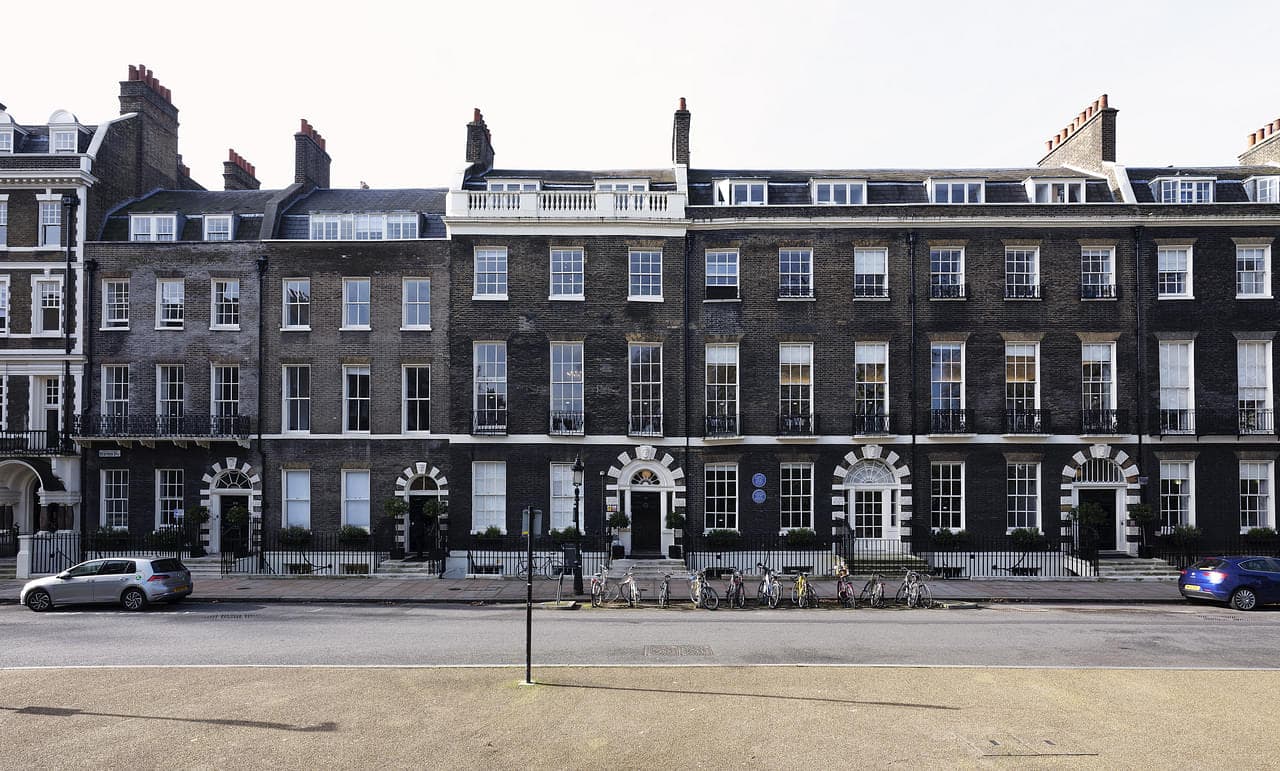PROGRAMME STRUCTURE
PHASE 1
Studio 1: Parts, Units and Groups – Analysis of Architectural Precedents - Term 1
Tutors: Cristina Gamboa, Platon Issaias, Hamed Khosravi and Raül Avilla
In Studio 1, students will be given a series of historic and contemporary case studies. They then have to define a preliminary research interest that will allow them to select other relevant examples of collective living. A number of related analytical studies and comparative ana-yses of architectural precedents frame each student’s preliminary research interests, ie. the way they would approach the design and research questions of collective living. The aim of this course is to familiarise students with the case study method, concepts of fundamental type and formative diagrams.
Seminar 1: Architectural Theories, Design and Design Methods - Term 1
Tutors: Doreen Bernath, Platon Issaias, Hamed Khosravi and invited guest lecturers
The seminar course is focused on the architectural scale, and introduces a number of research and design methodologies as well as theories or themes that are critical to the programme, such as type, typology, drawing and diagram. Questions about the systematic understanding of disciplinary knowledge and methodical design in architecture will be explored, and thus a historiography of a modern reasoning of form will be examined. The aim of this module is to familiarise students with architectural theories and theories of design methods.
Academic Writing 1 - Term 1
Tutor: Doreen Bernath
Alongside and complementary to Seminar 1, students are introduced to academic writing. The course is scheduled once a week, and on days when no seminars or group sessions take place, individual tutorials are held to discuss any writing in progress (these are also available to Year 2 students). The aim of the module is to familiarise students with the conventions of academic writing, the importance of writing to formulate a research argument and the differences in writing when examining a case study or text source.
Studio 2: Scales – From the Room to the City - Term 2
Tutors: Cristina Gamboa, Platon Issaias, Hamed Khosravi and Raül Avilla
The main focus of this module is multi-scalar investigation of the interdisciplinary relation between architecture, urban design and urban planning. Studio 2 builds on the previously introduced concept of formative diagrams in relation to fundamental types, as the basis from which to analyse models of collective living and forms of sharing. Alongside this, the idea of type and typology is expanded to the study of the city, and students are introduced to the conventions, parameters, processes and limits of urban planning. The aim of this module is to familiarise students with the concepts of typological conflict and transformation, and introduction to urban design and urban planning methodologies and the various parameters that shape them.
Seminar 2: Projects of the City - Term 2
Tutors: Doreen Bernath, Platon Issaias, Hamed Khosravi and invited guest lecturers
Seminar 2 is divided into two parts. The first explores the development of disciplinary knowledge about architecture and urbanism from the 19th century to the present day; the second part presents scholarly research in a series of important contemporary case studies. Together, this allows students to formulate their individual research propositions for the Thesis-Studio in Term 3. The aim of the module is to provide students with a survey of the theories that conceptualise the city, with a particular focus on the contemporary city, through its architecture and architectural projects.
Academic Writing 2 - Term 2
Tutor: Doreen Bernath
Alongside and complementary to Seminar 2, this course is scheduled once a week during Term 2. On days when no seminars or group sessions take place, individual tutorials are held to discuss any writing in progress (these are also available to Year 2 students). The aim of this module is to familiarise students with the writing of literature reviews, to assess current knowledge and to assist in positioning their own writing.
Thesis-Studio: Representations, Investigations and Diagrams - Term 3
Tutors: Platon Issaias and Hamed Khosravi
The Thesis-Studio is a combined design studio and seminar course in which students develop their dissertation proposal and start the dissertation. Underlying the Thesis-Studio is the hypothesis that critical and speculative projects on the city, whether practice and-or theory oriented, manifest an ‘idea of the city’ that can be understood through corresponding typological and social diagrams. Some of these ideas and different historical, theoretical and epistemological perspectives of the city will be discussed in seminars about critical projects from the recent past: exemplary proposals, representations, theories and reflections of the city. The aim of the module is to familiarise students with the ‘idea of the city’ and its spatial and social diagrams, to develop a clear focus for enquiry and to define the theoretical and physical context of the dissertation proposal.
Academic Writing 3 - Term 3
Tutor: Doreen Bernath
Alongside and complementary to the Thesis-Studio, the writing workshop is scheduled once a week during the term. On days when no seminars or group sessions take place, individual tutorials are held to discuss any writing in progress (these are also available to Year 2 students). The aim of this module is to familiarise students with the academic abstract writing for a research thesis.
PHASE 2
Dissertation - Term 4–5
Tutors: Platon Issaias, Hamed Khosravi and guest advisors
The dissertation is the final and most substantial piece of work in the programme, and is begun at the end of Phase I and developed throughout Phase II. Students conduct independent research under the close guidance of their supervisor(s), with the support of other programme staff and specialist consultants as required. The supervisor’s role is to aid the development of ideas and to encourage critical and independent thinking. Consisting of the development of a critical theoretical argument and a series of comprehensive design proposals, the dissertation encompasses significant and comprehensive independent research, including its planning and execution. The final outcome must demonstrate proficiency and rigour in research, design methods and techniques, as well as an understanding of context, literature and precedents.

